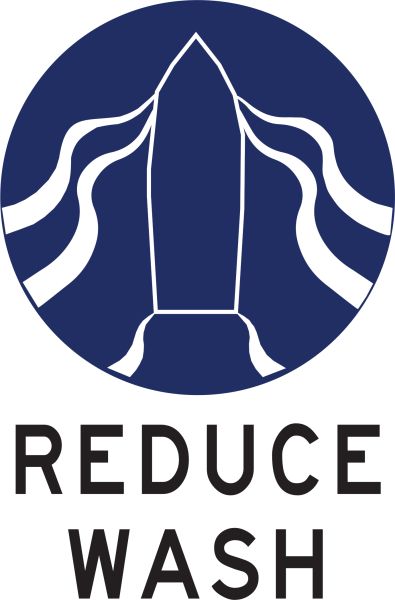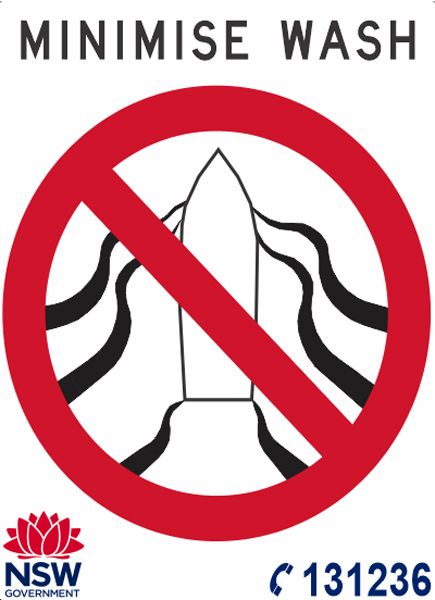Vessel wash rules on NSW waterways
Wash can be damaging to others and the environment. You must not create excessive wash out on the water. Here are the rules.
Excessive wash
Excessive wash is wash that damages or unreasonably impacts on any:
- other vessel, including when moored or at anchor
- bank, shore or waterside structure
- construction or other works in progress
- dredge or floating plant.
As the skipper, you're responsible for any damage your vessel's wash causes.
Minimise your wash
Wash can cause and contribute to a range of problems – from shore erosion to damage to seawalls and pontoons. It can also be dangerous and a nuisance to other vessels, especially to smaller vessels, and people in the water. Excessive wash can damage aquatic vegetation, including seagrasses, reeds and mangroves.
Most powered vessels create the greatest wash when 'half on the plane', less when planing, and even less when going at a slow idle speed.
When you're close to other people, other vessels or the shore, always aim to move quickly to or from planing speed. This minimises excessive wash. When approaching a busy beach or anchorage, slow down to a safe speed well in advance. This helps avoid your wash disturbing others.
Look behind your vessel regularly to check the wash and its impact on others and the shore. Slow down if necessary.
Follow wash signs
'Minimise Wash, 'Reduce Wash' and 'No Wash' signs are placed in areas at more risk of damage from wash. For example, damage to the shore or other vessels, or injury or annoyance to people.


When you see these signs, travel at a speed that creates minimal wash. Check your wash and slow down if you need to. If your wash is causing other boats to rock, or is causing waves to break or slap on the shore, you're creating too much wash and need to slow down.
Even if you're travelling at the speed limit shown on a sign, you may still create excessive wash. You should slow down to reduce your wash.